Finding that you have got ancestors from the Netherlands can be very exciting, and there are plenty of resources online to help you explore Dutch genealogy, even if you can’t speak Dutch. We’ve put together a basic guide to the records, with thanks to Dutch genealogist Bob Coret, and a short list of some of the best websites to help you trace your Dutch ancestors.
Civil registration records, formally introduced in 1811, are widely available in Dutch archives and online. Birth records become public after 100 years, marriage records after 75 years, and death records after 50 years. Most of these records are available digitally (indexed and scanned) and can be accessed for free. Together with population registers and family cards, these sources are among the most common records used to build your family tree.
Church records were transferred to archives around 1811, providing an additional two centuries of genealogical information. However, these records can be more challenging to read. Determining which archive holds specific sources can be a task, as there are provincial archives (12 of them), regional archives, and city or municipal archives. Most of these archives offer a wide range of information on their websites, from inventories to images and chat services. However, be aware that most of these websites are available in Dutch only.
Once you have established a basic family tree using civil and church registries, you can expand your research to sources like notarial deeds, immigration records, and military records. Many of these sources are also being digitised. Dutch archives are increasingly utilising handwritten text recognition (HTR) to create automated transcriptions of sources, such as notarial deeds, making them more easily searchable. However, not all sources are available online, and some still require a visit to an archive.
The best websites for tracing Dutch ancestry
1. Open Archives
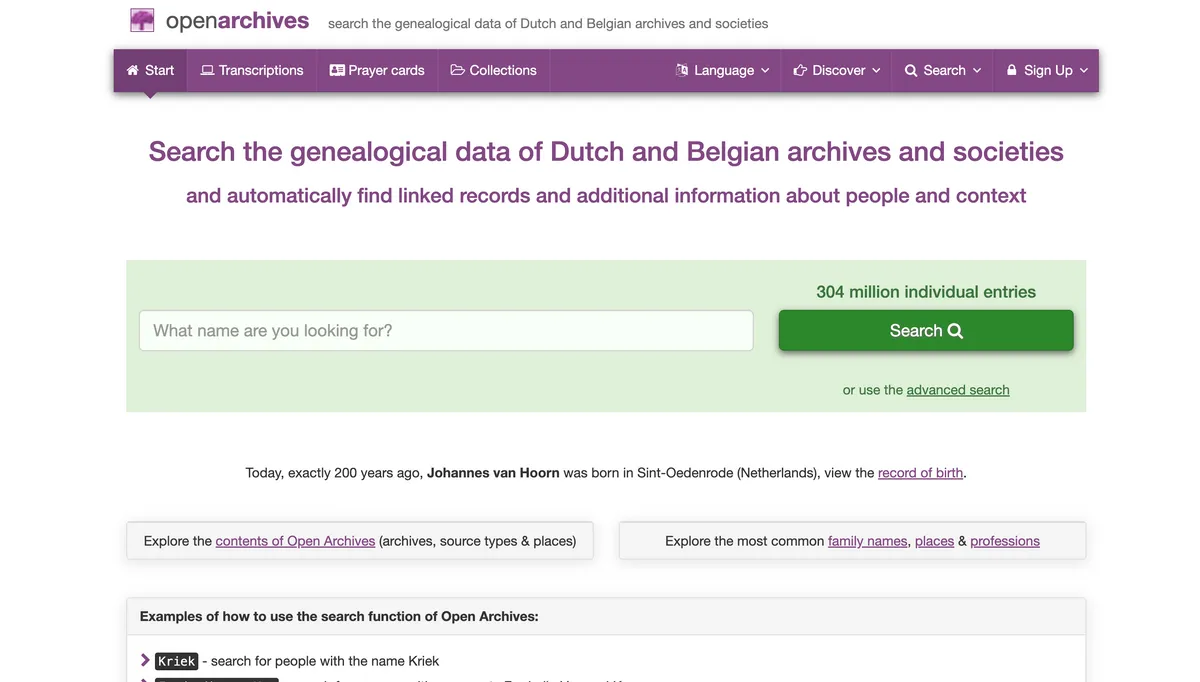
The Open Archives website is a multilingual platform for discovering genealogical information from archival sources. Featuring data from over 160 Dutch and Belgian archives and historical societies, it offers the largest online resource for tracing your ancestry. With records of approximately 300 million individuals, the information is easily and freely searchable.
The presentation of records on Open Archives is designed for immediate clarity. For example, marriage records are not just lists of labels and values; they are presented as compact family trees, clearly identifying the bride, groom, and their parents. When the source of the information is available as an online scan, the scan is displayed and can often be downloaded with a single click.
Open Archives also provides supplementary details about the date, location, or individuals mentioned in a record. This includes the weather on the specific date, historical maps of the location, links to other related records on Open Archives, and external links to information about the individuals, such as graveyard websites and online genealogies.
2. WieWasWie
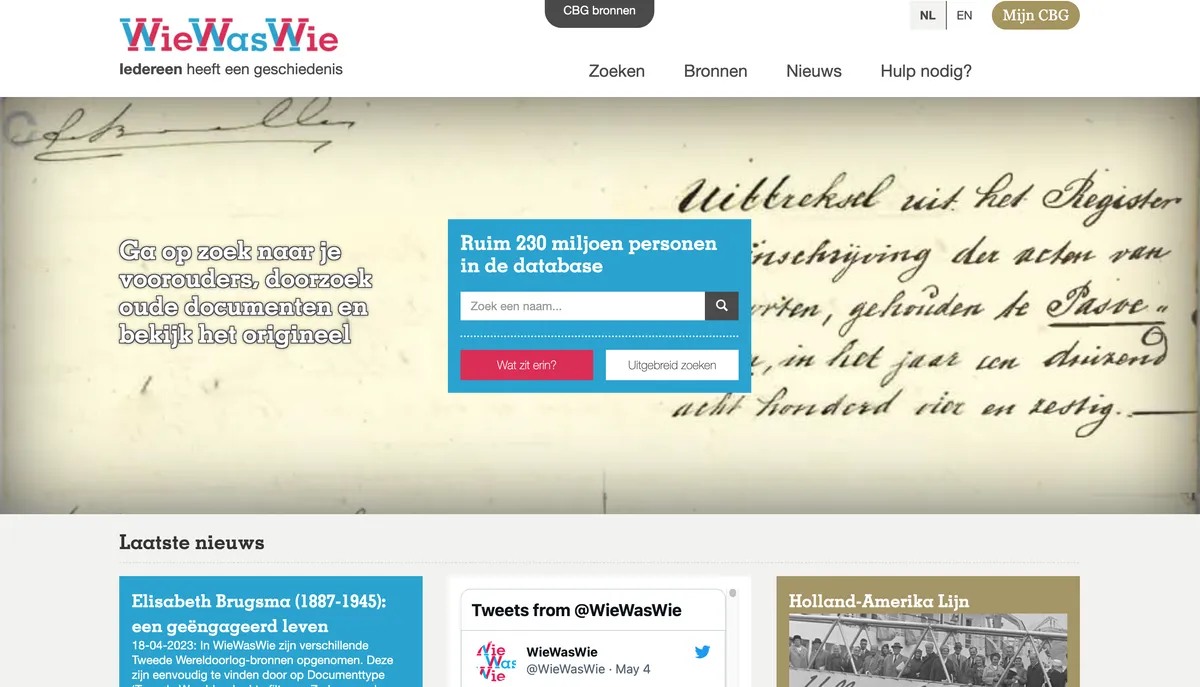
WieWasWie (WhoWasWho) is the starting point for research into your Dutch family history. On the platform – run by the CBG| Centre for Family History – you can find genealogical sources from the whole of the Netherlands. With more than 230 million personal records you can be sure to find your family.
In addition to the basic sources for family tree research – the church records, the civil records and the population registers – there are many more sources included in our genealogical database WieWasWie, such as the militia (conscripts) registers, judicial and notarial archives, family announcements and the passenger lists of the Holland America Line.
Using the website is easy. With ‘Simple search’ you just type the name of your ancestor in the search field, and use the filters to refine your results. Alternatively you can use ‘Advanced search’ or get a premium access (€ 21.65 per year) to search with two names and use the wildcards ? (replaces one character) and * (replaces multiple characters).
The search function and the help pages of the WieWasWie website are available in English. Just click the button in the right hand corner to switch from Dutch to English and vice versa.
3. CBG – Centre for Family History
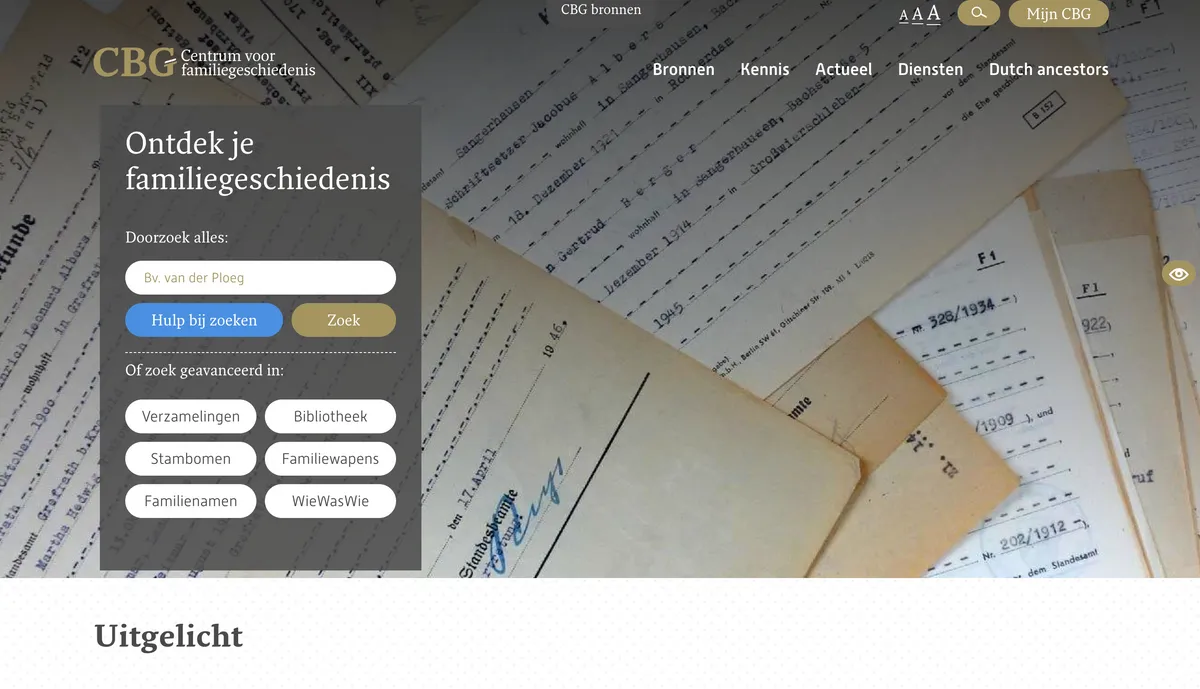
The website of the CBG|Centre for Family History offers a wealth of information for anyone starting their journey into Dutch genealogy, from easy to read ‘how to’ pages to extensive in-depth background information on related topics such as immigration and emigration, the Second World War, crime and punishment, DNA, and Indo-European ancestors. It also offers an overview of the CBG’s specific sources: its collection of birth and marriage announcements, obituaries, family archives, and more; the CBG Library with a vast collection of genealogies and related literature; its heraldic collection; and the immensely popular family name database. A special feature are the pages dedicated to the various editions of the Dutch equivalent of Who Do You Think You Are?, Verborgen Verleden. After each broadcast, experts of the CBG|Centre for family history (who are responsible for a large part of the research) provide a brief summary with research tips and explanatory notes. Most of the website is in Dutch, but foreigners whose forebears hail from the Netherlands may find relevant background information under the heading ‘Dutch ancestors’.
4. Archieven
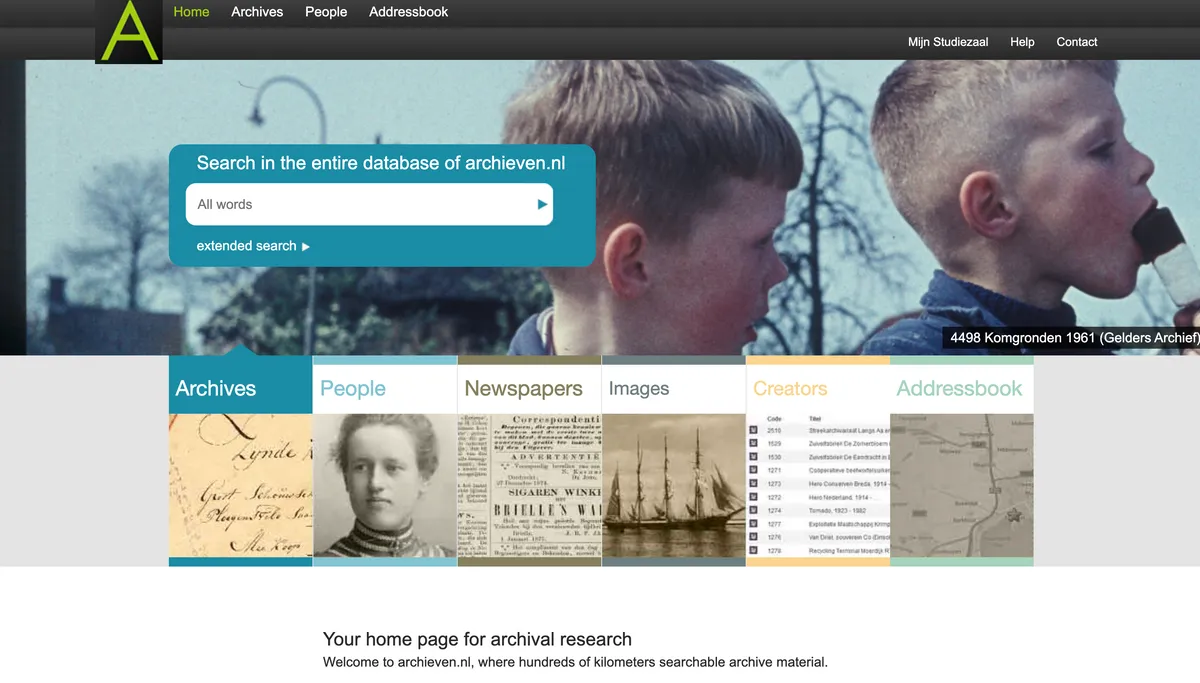
A great site for finding what’s in the archives including online genealogical indexes.
5. Delpher
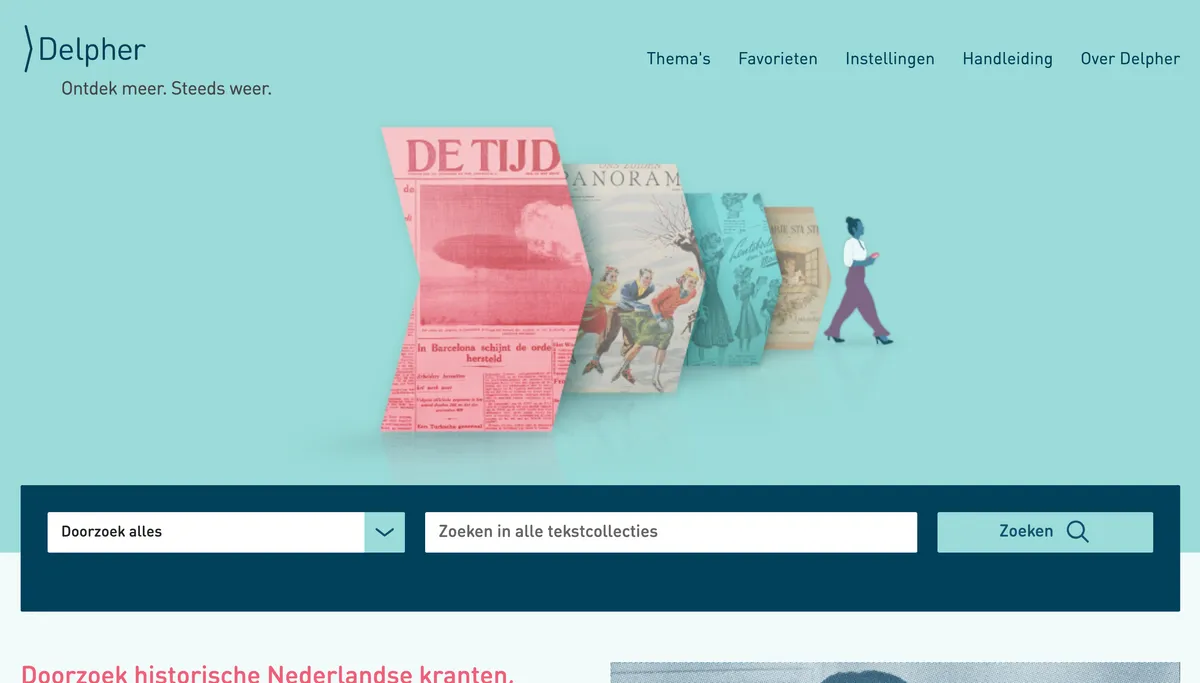
This website from the Dutch National Library, houses over 2 million old newspapers dating from 1618 to 2005.
6. FamilySearch
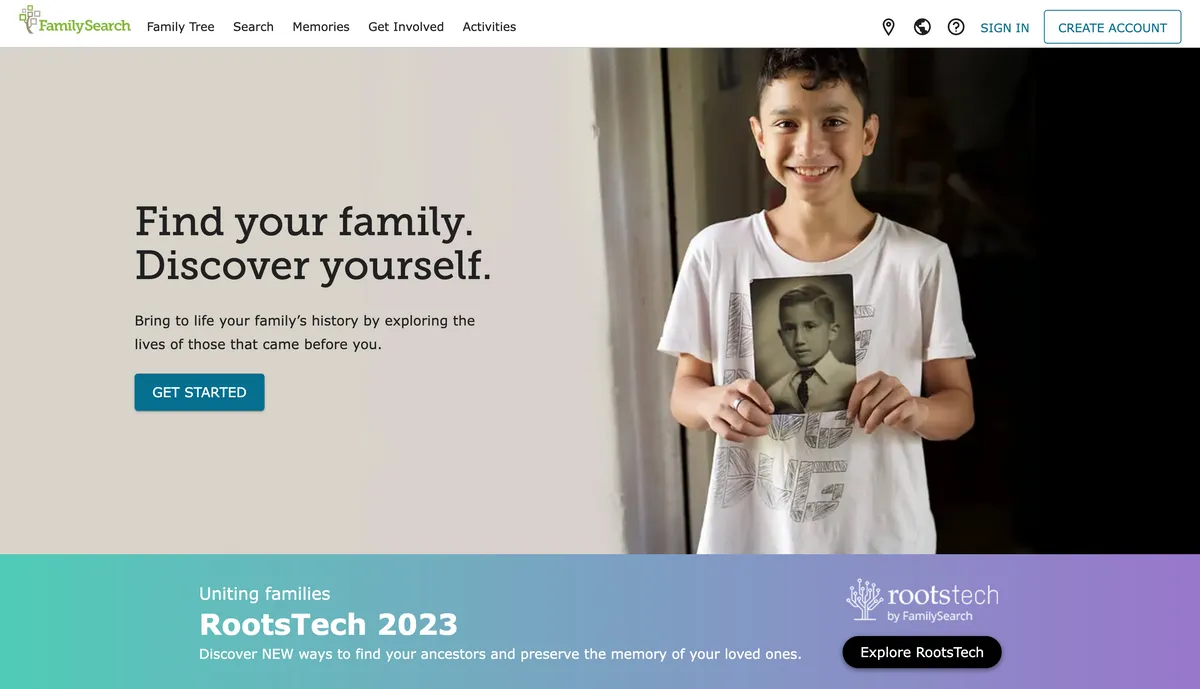
This global free genealogy website has excellent guidance to international records via its wiki, along with plenty of Dutch sources. Many of them are still unindexed so you may need to browse by places, rather than names.
7. GenealogieOnline
A website where many Dutch people publish their online family tree. These compiled genealogies are a great way to find connections and grow your tree quickly, although be aware that mistakes can creep into other people’s research.
8. Nationaal Archief
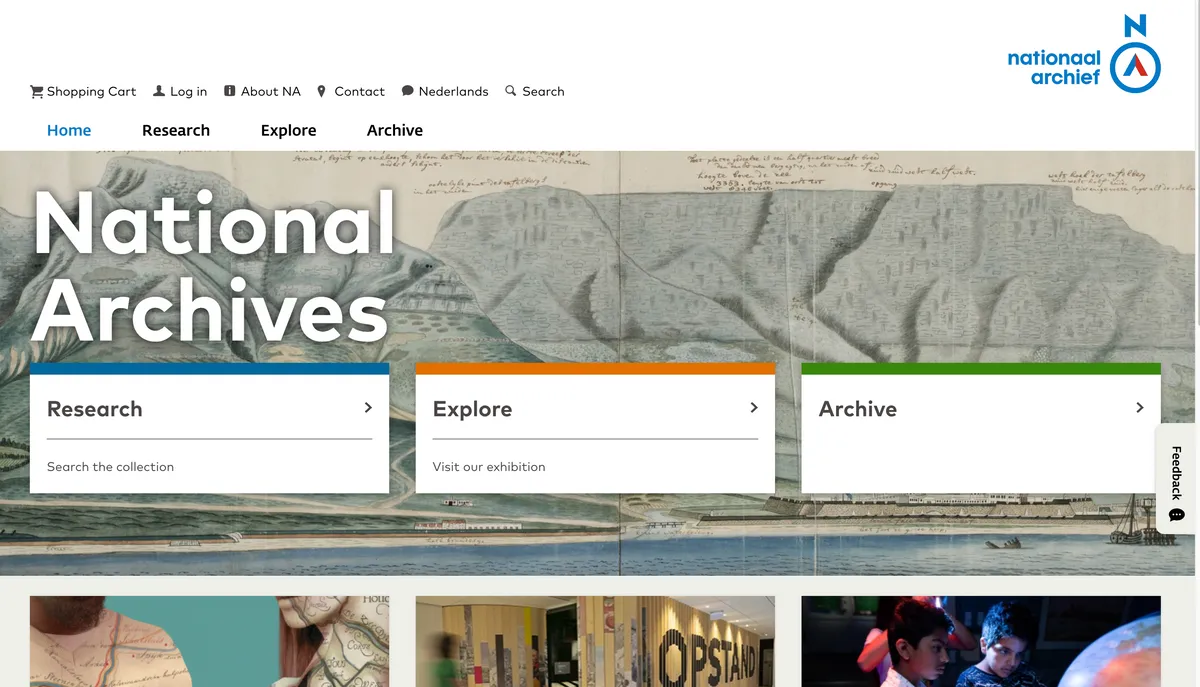
The Dutch National Archives website has some useful genealogical indexes, including emigration records and freed slaves in the West Indies as well as hundreds of maps.
